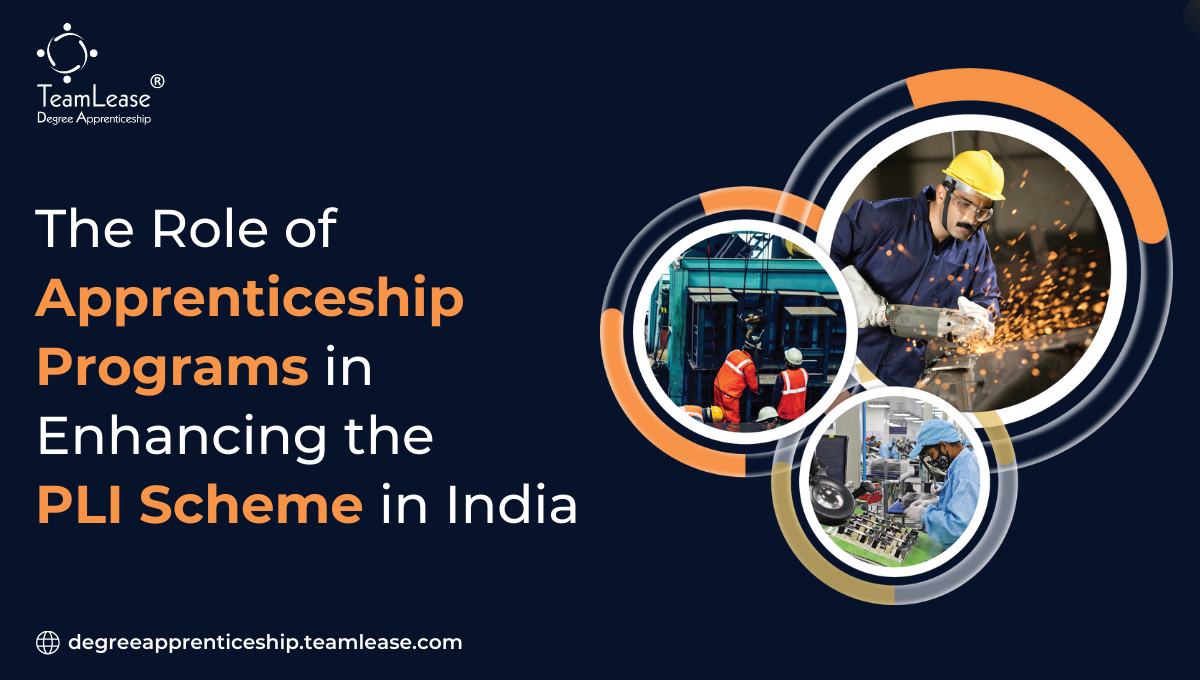The Production Linked Incentive (PLI) Scheme in India is a strategic initiative aimed at boosting the manufacturing sector. Launched by the Indian government, the PLI Scheme targets various sectors, including electronics, pharmaceuticals, automobiles, and textiles, offering financial incentives to companies that achieve specified production and sales targets.
As per Government projections, the minimum production in India due to PLI schemes will be over US$ 500 billion in 5 years.
While the scheme holds significant potential for economic growth, its success largely depends on the availability of a skilled workforce.
This is where apprenticeship programs can play a crucial role.
Addressing Skill Gaps
One of the primary challenges facing PLI-approved sectors is the shortage of skilled labour. As industries evolve, the demand for specialized skills increases. Apprenticeship programs provide a structured pathway for training individuals in specific trades and skills required by these sectors. By partnering with educational institutions and industry experts, apprenticeship programs can create a pipeline of skilled workers ready to meet the demands of PLI-approved sectors.
Our Report on the ‘People Supply Chain Innovation for PLI Approved Sectors’ provides detailed information of the scheme and the work-based learning programs that can help in building an effective talent pipeline. Download the Report
Enhancing Workforce Competency
Apprenticeship programs combine theoretical knowledge with hands-on experience, ensuring that trainees acquire practical skills that are immediately applicable in the workplace. This dual approach not only enhances the competency of the workforce but also ensures that trainees are well-versed in the latest industry practices and technologies. For sectors like electronics and automobiles, where precision and innovation are paramount, having a workforce trained through apprenticeship programs can significantly boost productivity and quality.
Promoting Career Advancement
Apprenticeship programs offer a clear and structured career advancement pathway. By starting as apprentices, individuals can gradually climb the career ladder, gaining experience and expertise along the way. This not only motivates employees to stay within the industry but also reduces turnover rates, which can be detrimental to the continuity and growth of businesses. For companies, retaining skilled employees means a more stable and experienced workforce, leading to sustained growth and development.
Economic Growth and Sustainability
A skilled workforce is the backbone of any thriving economy. By integrating apprenticeship programs into the PLI Scheme, India can ensure a steady supply of skilled workers, thereby promoting sustainable economic growth. Companies that invest in apprenticeship programs are likely to see improved productivity, innovation, and competitiveness. Furthermore, these programs can help bridge the gap between education and employment, ensuring that graduates are job-ready and equipped with the skills needed by the industry.
Apprenticeship programs hold immense potential to support the PLI Scheme in India. By addressing skill gaps, enhancing workforce competency, promoting career advancement, and contributing to economic growth, these programs can play a pivotal role in the success of PLI-approved sectors. As India continues to push for self-reliance and global competitiveness, integrating apprenticeship programs into the broader industrial strategy will be key to achieving these goals.



 Rules, 2025' 2.png)
No comments yet
Your Comment